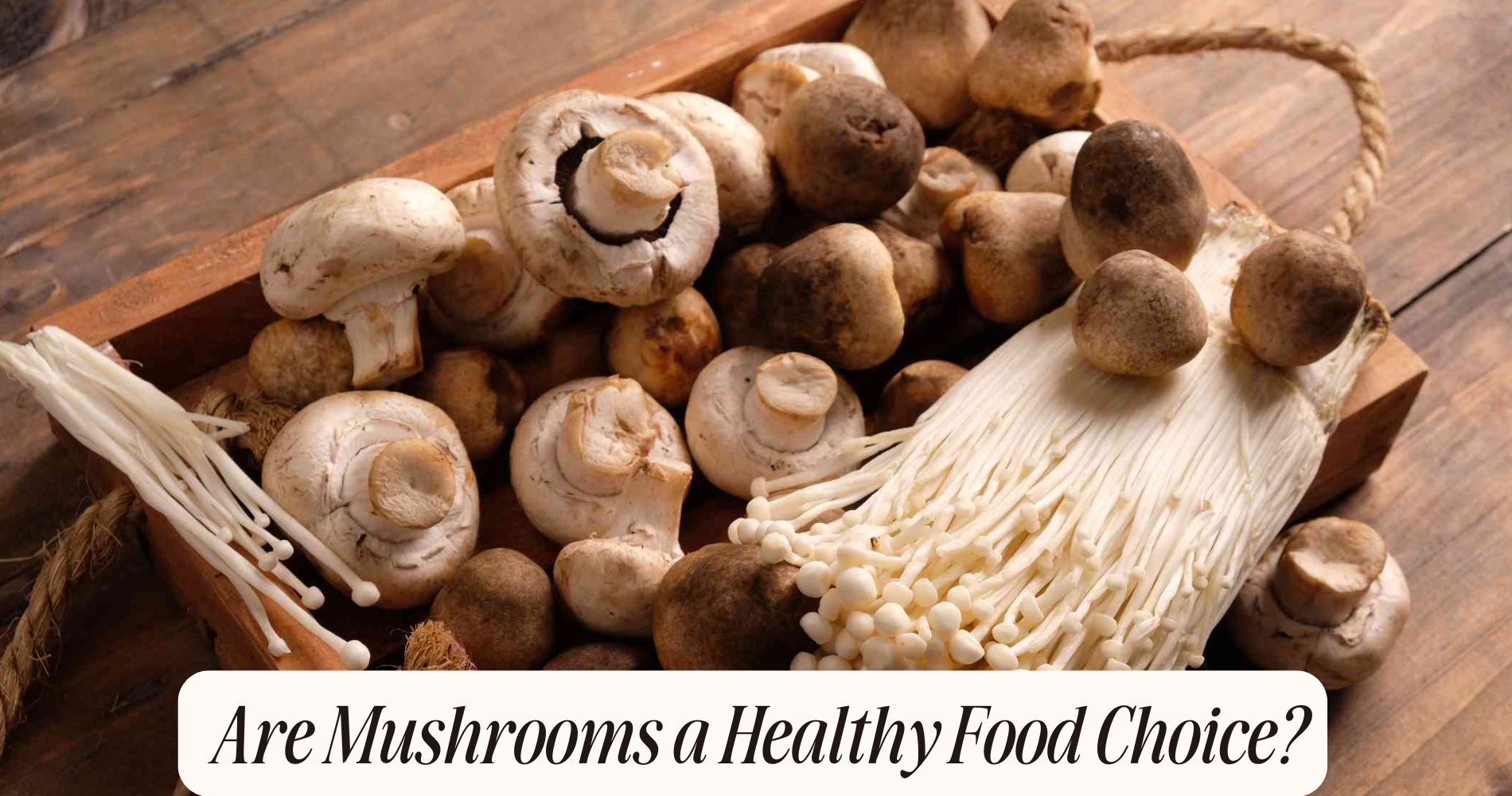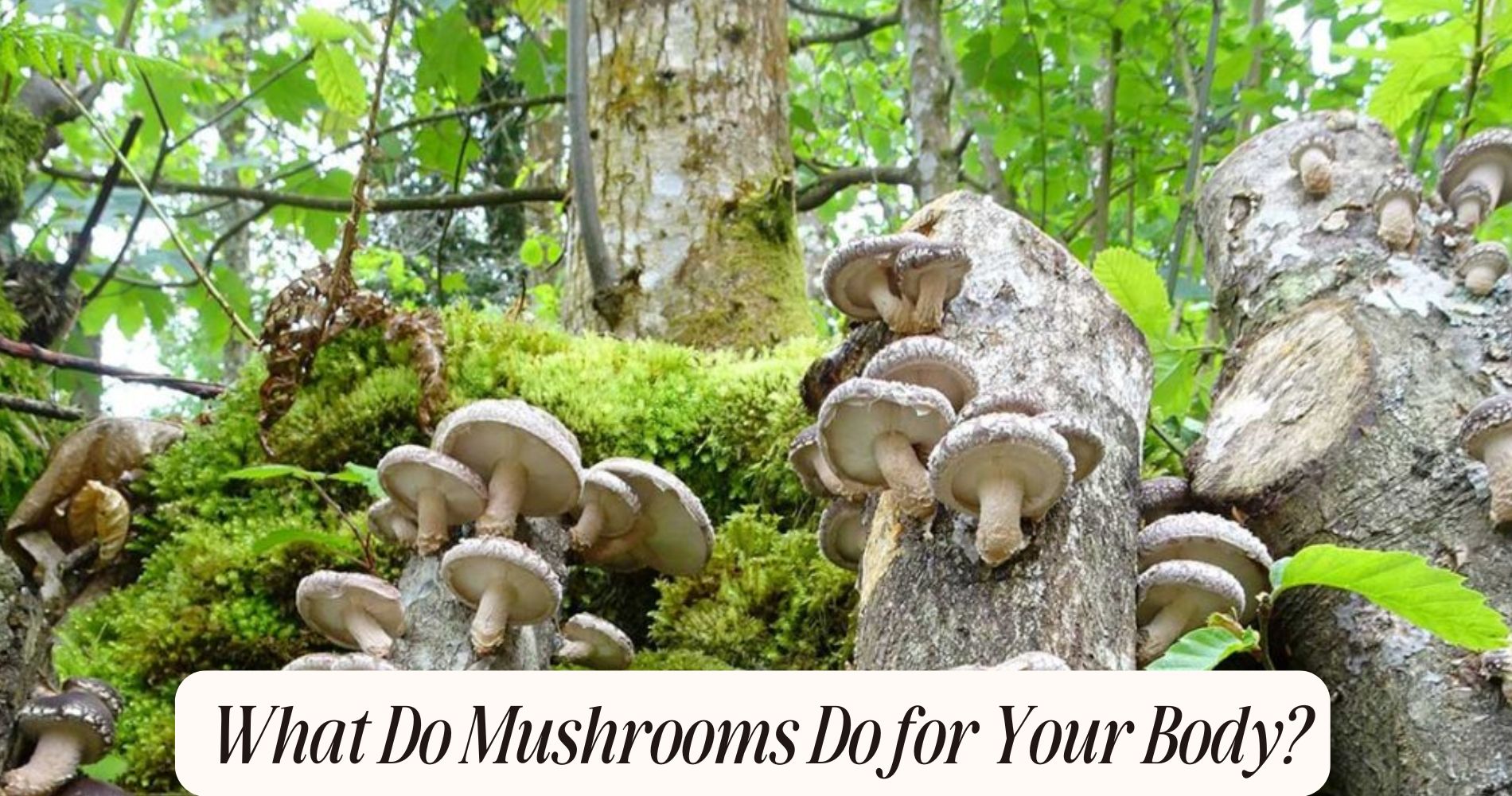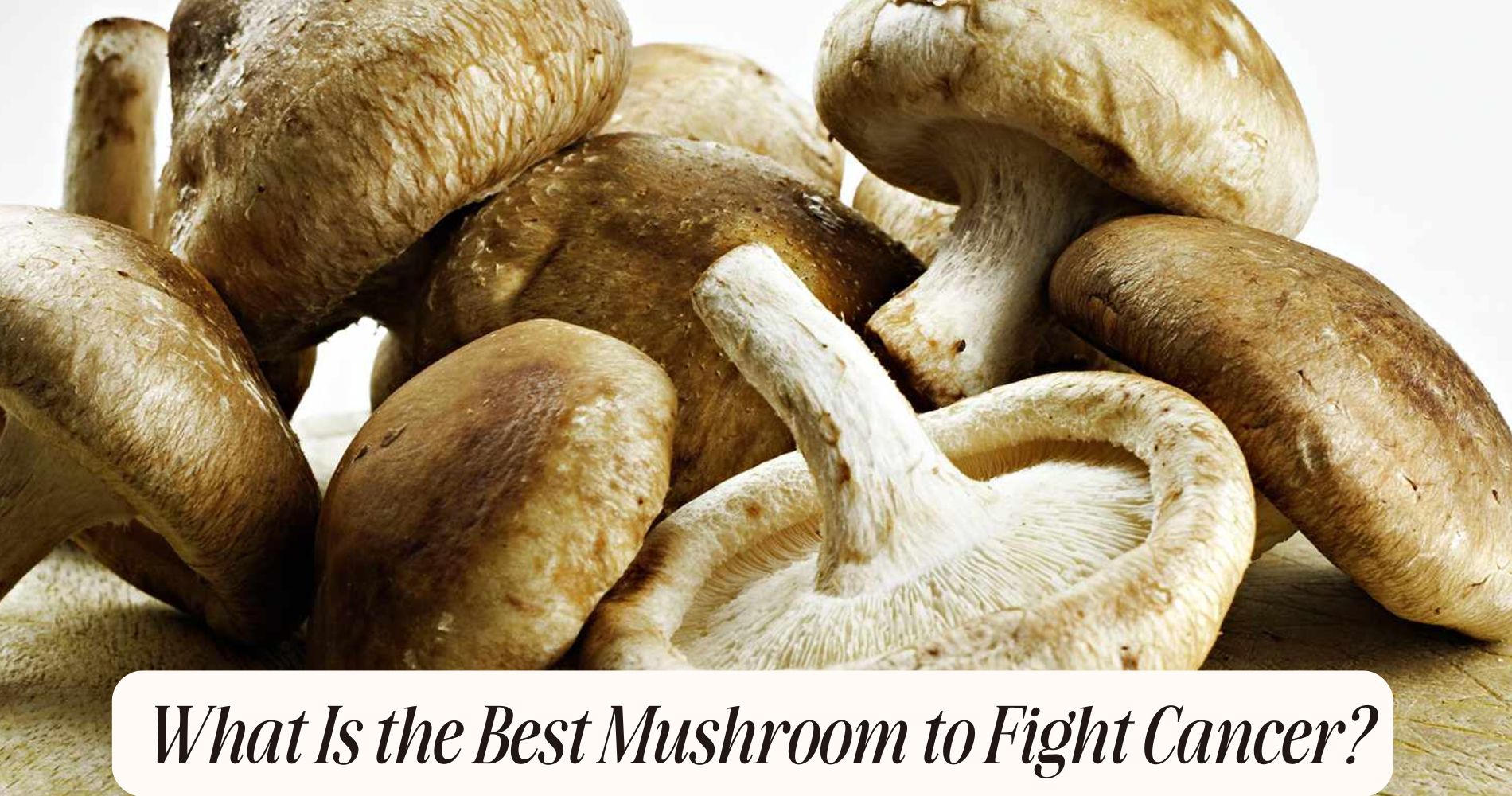
Are Mushrooms a Healthy Food Choice?
Are mushrooms healthy food? Yes, mushrooms are a healthy food choice! They're low in calories and packed with essential vitamins, minerals, and antioxidants. Their high fiber content helps with weight management by promoting fullness. Mushrooms also provide nutrients like B vitamins, selenium, and vitamin D, which support energy production, bone health, and immunity. Additionally, they contain beta-glucans that can improve heart health. Versatile in the kitchen, you can add them to various dishes to boost nutrition and flavor. If you want to explore the different types and their unique benefits, you might find some interesting options to try!
Nutritional Profile of Mushrooms
Mushrooms are often overlooked as a nutritional powerhouse, but they consistently offer a range of essential nutrients that can benefit your diet. With numerous mushroom varieties, such as shiitake, portobello, and cremini, they add unique flavors and textures to your meals while boosting your nutrient intake.
Mushrooms are low in calories and rich in fiber, making them an excellent choice for weight management. They provide essential vitamins, including B vitamins like riboflavin and niacin, which support energy production and metabolism. Additionally, mushrooms contain minerals like selenium, potassium, and copper, which play significant roles in your body's functioning.

Incorporating mushrooms into your culinary uses is easy, whether you're sautéing them, adding them to soups, or tossing them in salads. Their versatility allows you to experiment with different dishes, enhancing both flavor and nutrition.
Consider adding various mushroom varieties to your meals to diversify your nutrient intake. From stir-fries to pasta dishes, these fungi can elevate your cooking while providing you with essential nutrients.
Don't underestimate the impact of these small but mighty ingredients on your overall diet!
Health Benefits of Mushrooms
The health benefits of incorporating mushrooms into your diet are impressive and wide-ranging. These fungi are low in calories and packed with nutrients, making them a smart choice for anyone looking to maintain a healthy weight. Different mushroom varieties, like shiitake and maitake, are rich in antioxidants that help combat oxidative stress, which can contribute to chronic diseases.
Moreover, mushrooms are a good source of vitamin D, especially when exposed to sunlight during growth. This vitamin plays a crucial role in bone health and immune function. Certain cooking methods, such as sautéing or grilling, can enhance the absorption of these nutrients, allowing you to maximize the health benefits.
Mushrooms also contain beta-glucans, which are known to support heart health by improving cholesterol levels and promoting healthy blood pressure. Incorporating a variety of mushrooms into your meals can diversify your nutrient intake while adding unique flavors and textures.
Whether you toss them in a salad, stir-fry, or soup, you'll be taking a significant step towards a healthier diet. Embracing mushrooms can truly elevate your overall well-being.
Types of Edible Mushrooms
Exploring the diverse world of edible mushrooms reveals a variety of flavors, textures, and nutritional profiles that can enhance your meals.
You'll find mushroom varieties like shiitake, portobello, and cremini, each offering distinct flavor profiles. Shiitakes have a rich, earthy taste, while portobellos provide a meaty texture perfect for grilling or roasting.

Mushrooms can be used in numerous culinary applications, from soups and stews to salads and stir-fries. You might enjoy sautéing them with garlic and herbs to bring out their umami flavors.
Alternatively, try incorporating them into pasta dishes or as a pizza topping for added depth.
Different cooking techniques can elevate the natural goodness of mushrooms. For example, grilling enhances their smoky notes, and slow-cooking can deepen their flavor.
Additionally, you can use dried mushrooms, which concentrate their taste and can be rehydrated for various recipes.
Mushrooms and Weight Management
Incorporating mushrooms into your diet can be a smart strategy for weight management. These low-calorie, nutrient-dense foods are rich in fiber, which plays an essential role in promoting satiety. When you feel full, you're less likely to overeat, making it easier to maintain a healthy weight. Studies have shown that adding mushrooms to meals can enhance feelings of fullness, thereby supporting your weight loss efforts.
Moreover, mushrooms can positively impact your metabolism. They contain essential nutrients like B vitamins, which are crucial for energy production and metabolic functions. By including mushrooms in your meals, you might boost your metabolic rate, helping your body burn calories more efficiently.
Additionally, mushrooms are versatile and can easily replace higher-calorie ingredients in your favorite dishes. For instance, using mushrooms instead of meat in tacos or pasta can greatly reduce calorie intake while still providing a satisfying meal.
Antioxidants in Mushrooms
Mushrooms are packed with various types of antioxidants that can boost your health.
These compounds, such as ergothioneine and glutathione, play an essential role in combating oxidative stress and reducing inflammation in your body.
Types of Antioxidants Present
While many people appreciate mushrooms for their culinary versatility, they also pack a powerful punch of antioxidants that can benefit your health. Different mushroom varieties exhibit varying antioxidant levels, making them a valuable addition to your diet.
For instance, shiitake mushrooms are known for their high levels of ergothioneine and selenium, both of which help combat oxidative stress in your body.
Another interesting option is the oyster mushroom, which contains a significant amount of polyphenols, particularly flavonoids. These compounds play an essential role in neutralizing free radicals and reducing inflammation.
On the other hand, maitake mushrooms offer unique antioxidants like beta-glucans, which not only support immune function but also contribute to overall antioxidant capacity.

White button mushrooms, commonly found in grocery stores, are often overlooked but still contain useful antioxidants like phenolic compounds. While they may not have the highest antioxidant levels, they still provide benefits when included in your meals.
Health Benefits of Antioxidants
Antioxidants play an essential role in maintaining your health by neutralizing harmful free radicals in the body. These unstable molecules can contribute to chronic diseases and aging.
Including mushroom antioxidants in your diet can greatly enhance your antioxidant intake, as mushrooms are rich in various compounds known for their protective effects.
Research shows that certain mushroom varieties, like shiitake and reishi, contain potent antioxidants such as ergothioneine and glutathione. These compounds not only combat oxidative stress but also support your immune system, potentially reducing the risk of illnesses.
Incorporating mushrooms into your meals is an easy way to access these antioxidant sources. Whether you sauté them, add them to soups, or toss them in salads, you'll be enriching your diet with health-promoting nutrients.
Moreover, mushrooms can offer unique benefits compared to other antioxidant sources, such as fruits and vegetables, by providing additional anti-inflammatory properties.
Potential Medicinal Properties
Exploring the potential medicinal properties of mushrooms reveals a fascinating world of health benefits. Many species contain medicinal compounds that have been utilized for centuries in traditional medicine.
For instance, reishi mushrooms are renowned for their immune-boosting properties, while lion's mane has gained attention for its potential cognitive benefits, including neuroprotection and enhanced memory.

Research indicates that certain mushrooms, like shiitake and maitake, boast compounds that may help lower cholesterol levels and improve heart health.
Moreover, the polysaccharides found in mushrooms can enhance your immune response, making them a valuable addition to your diet.
In addition to their immune-boosting effects, some mushrooms have shown promise in cancer research. Compounds like beta-glucans may help inhibit tumor growth and support overall health during treatment.
While these findings are promising, it's crucial to approach them with caution. More research is needed to fully understand the extent of these benefits and how mushrooms can be effectively incorporated into modern medicine.
How to Incorporate Mushrooms
Incorporating mushrooms into your diet can be both simple and rewarding, as they add unique flavors and numerous health benefits to various dishes.
Start by exploring different mushroom recipes that highlight their versatility. You can sauté them with garlic and herbs for a delicious side dish or toss them into salads for added texture.
Consider using cooking techniques like grilling or roasting to enhance their natural umami flavor. For instance, marinated portobello mushrooms make an excellent burger substitute, while shiitake mushrooms can elevate a stir-fry.
If you're looking for a quick meal, try adding chopped mushrooms to omelets or pasta dishes. They blend seamlessly into soups and stews, providing depth and richness.
Don't hesitate to experiment with dried mushrooms, which you can rehydrate and use in various recipes for concentrated flavor.
Safety Considerations With Mushrooms
Mushroom safety is essential for enjoying this nutritious food without risk. While mushrooms can be a healthy addition to your diet, you need to be aware of the potential dangers, particularly mushroom poisoning. Many species of wild mushrooms are toxic, and consuming them can lead to severe health issues or even death.
It's vital to educate yourself about the types of mushrooms you may encounter, especially if you're interested in safe foraging. If you're foraging for mushrooms, always carry a reliable field guide, and when in doubt, consult an expert before consumption.
Even experienced foragers can sometimes misidentify a mushroom, so err on the side of caution. It's best to only consume mushrooms from trusted sources if you're unsure about their safety.
Additionally, store mushrooms properly and cook them thoroughly to reduce any risks. Some mushrooms can cause gastrointestinal discomfort if eaten raw, while cooking can enhance their flavors and digestibility.
Enjoy Mushroom Benefits with 10-IN-1 MUSHROOM GUMMIES
If you're asking, are mushrooms healthy food, the answer is a resounding yes—and Well Gummies’ 10-IN-1 MUSHROOM GUMMIES make it easier than ever to incorporate their benefits into your routine. These vegan gummies combine 10 functional mushrooms, including reishi, to fuel your brain, boost immunity, and provide balanced, calm energy. With a refreshing wild berry flavor that tastes just like your favorite candy, you can enjoy their powerful health benefits without any jitters or energy crashes. Elevate your wellness journey with these convenient, nutrient-rich gummies for all-day clarity and vitality.
Frequently Asked Questions
Can Mushrooms Cause Allergic Reactions in Some Individuals?
Yes, mushrooms can cause allergic reactions in some individuals. If you have mushroom allergies, your immune response may mistakenly identify mushroom proteins as harmful, leading to symptoms like itching, swelling, or gastrointestinal distress.
Are There Any Toxic Mushrooms to Avoid?
Yes, there are toxic mushrooms you should avoid. To guarantee safety, focus on learning proper mushroom identification and stick to well-known edible varieties. Always consult experts or guides before consuming any wild mushrooms.
How Should Mushrooms Be Stored for Freshness?
To keep mushrooms fresh, store them in a paper bag in the fridge. This method extends their shelf life by allowing airflow, preventing moisture buildup. Avoid plastic bags, as they can cause mushrooms to become slimy.
Do Mushrooms Have a High Carbohydrate Content?
Mushrooms aren't high in carbohydrates; they provide a low-carb option in your meals. When you compare mushroom nutrition to other vegetables, you'll find they offer fiber and essential nutrients without greatly increasing your carb intake.
Can Mushrooms Interact With Medications or Supplements?
Mushrooms can interact with certain medications due to their unique mushroom metabolism and medicinal properties. It's essential you consult your healthcare provider to guarantee they won't interfere with your current treatment or supplements.
Conclusion
Incorporating mushrooms into your diet can be a nutritious choice, offering essential nutrients and health benefits. Their low-calorie content makes them great for weight management, while antioxidants support overall well-being. With various edible types available, you can easily add them to your meals. However, always verify you choose safe, properly identified mushrooms to avoid any risks. By enjoying mushrooms as part of a balanced diet, you can enhance both flavor and nutrition.




